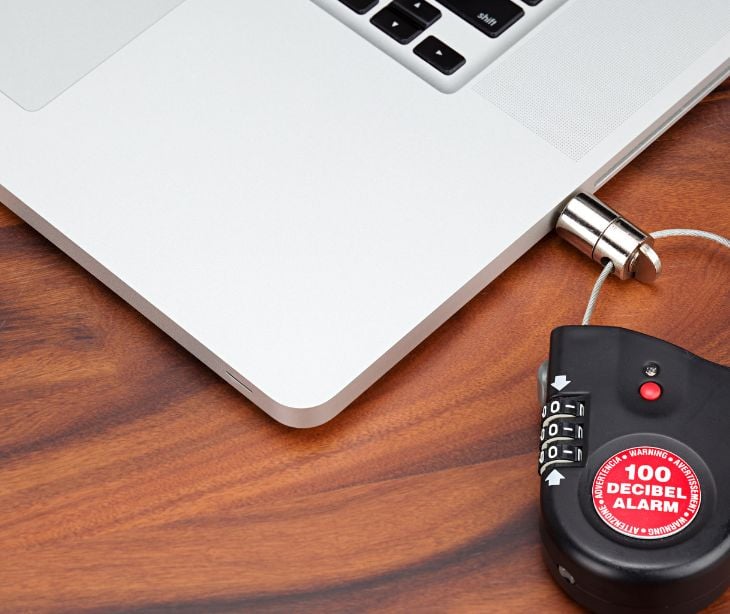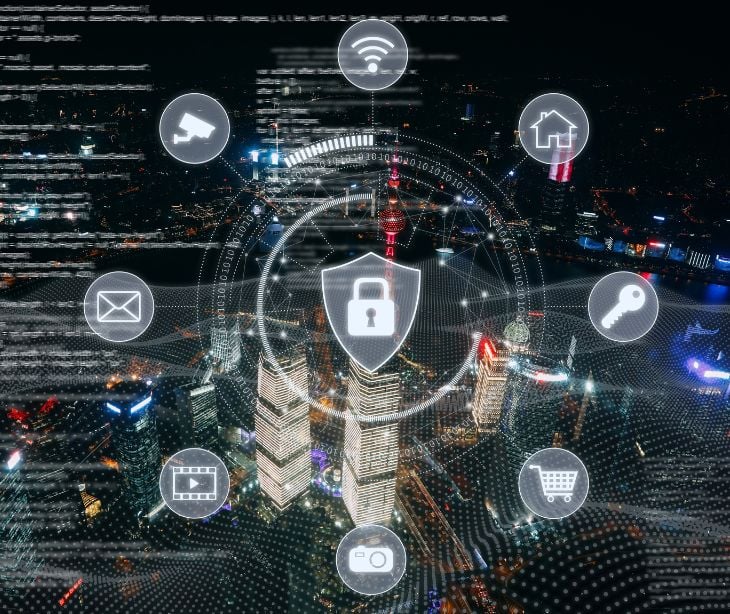
Physical security controls are a requirement and a cost-effective way to safeguard sensitive information. Organizations must prioritize physical security measures alongside technical and administrative safeguards to avoid costly fines and potential breaches.
Understanding HIPAA's requirements
The HIPAA Security Rule requires covered entities and business associates to implement physical safeguards for all workstations that access ePHI. These safeguards are designed to restrict access to authorized users and protect against unauthorized physical access, tampering, and theft.
Go deeper:
- What are administrative, physical, and technical safeguards?
- What is a covered entity?
- What does it mean to be a business associate?
The cost of neglecting physical security
A lack of physical security measures can be costly for organizations. The Department of Health and Human Services' Office for Civil Rights (OCR) has settled cases where ePHI was exposed due to inadequate physical security.
For instance, Lahey Hospital and Medical Center paid $850,000 in HIPAA fines after an unencrypted laptop was stolen from an unlocked treatment room, compromising the ePHI of 599 patients. QCA Health Plan settled with OCR for $250,000 due to the theft of an unencrypted laptop from an employee's vehicle.
Implementing physical security controls
Organizations should conduct a risk assessment and develop a risk management process tailored to their specific needs to ensure compliance with HIPAA's physical security requirements. Physical security controls that can help secure electronic devices and protect ePHI include:
Positioning desks
One simple yet effective measure is to position desks so that unauthorized individuals cannot easily view screens. This prevents "shoulder surfing" and unauthorized access to ePHI.
Using cable locks
Securing electronic devices containing PHI with cable locks is an excellent deterrent against theft. These locks physically anchor devices to fixed objects, making it difficult for opportunistic thieves to steal them.
Install security cameras
Security cameras can significantly deter theft and unauthorized access to physical PHI. Strategic placement of cameras in key areas can help monitor and record any suspicious activities.
Utilize signage
Clear and visible signage can serve as a constant reminder for employees to adhere to physical security controls. Simple messages like "Lock Your Devices" or "Keep This Area Secure" can reinforce the importance of safeguarding ePHI.
Use port and device locks
Restricting CD/DVD drives and USB connections on workstations can prevent unauthorized copying of ePHI and installation of unauthorized software. Port and device locks can be implemented to control access to these functionalities.
Best practices for physical security
Conduct regular training and awareness programs
Employees should be educated about the importance of physical security controls and trained to implement them effectively.
Develop and enforce policies and procedures
Organizations should establish clear policies and procedures regarding physical security controls. These documents should outline responsibilities, guidelines, and protocols to be followed by employees, contractors, and third-party vendors.
Regularly review and update security measures
Conducting periodic assessments and audits helps identify vulnerabilities and implement necessary improvements.
Engage in continuous monitoring
Monitoring physical security controls enables organizations to promptly detect and respond to potential threats. This includes monitoring access logs and security camera footage and implementing intrusion detection systems.
Foster a culture of security
Creating a security culture within an organization is critical to ensuring compliance with HIPAA's physical security requirements.
FAQs
What is physical security in HIPAA compliance?
Physical security refers to the measures taken to protect physical locations, equipment, and facilities that store or access protected health information (PHI) from unauthorized access, theft, or damage.
What are some components of physical security under HIPAA?
Components include controlled access to facilities, surveillance systems, security personnel, secure disposal of PHI, and proper maintenance of physical environments to protect against environmental hazards.
How can healthcare organizations ensure secure access to facilities?
Organizations can implement access controls such as key cards, biometric scanners, and visitor logs to restrict entry to authorized personnel only, ensuring that PHI is not exposed to unauthorized individuals.
What role does employee training play in physical security?
Employee training is necessary for raising awareness about physical security policies, procedures, and best practices, ensuring staff understand how to protect PHI and report potential security concerns.
What actions should be taken in case of a physical security breach?
In the event of a physical security breach, organizations must follow their incident response plan, which typically involves notifying the appropriate authorities, securing the affected area, conducting an investigation, and reporting the breach as required under HIPAA regulations.
Subscribe to Paubox Weekly
Every Friday we bring you the most important news from Paubox. Our aim is to make you smarter, faster.




